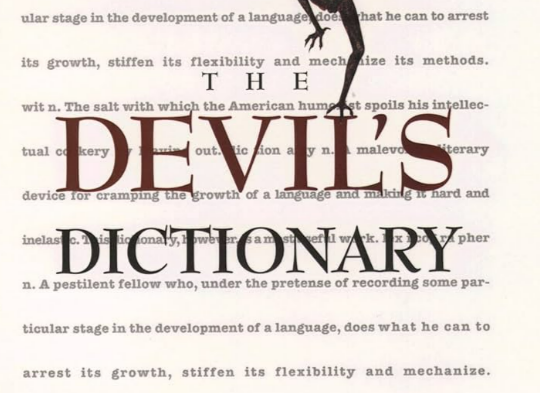Chapter G
byChapter G opens with a sharp commentary on the Gallows, not just as a structure of justice, but as a morbid stage where the condemned briefly becomes the center of attention. Bierce reduces its grim function to theatrical irony, describing how society transforms punishment into performance. The accompanying verse adds that the noblest death is one delivered with absolute stillness—suggesting that dignity in the face of death may be the last illusion granted to those society condemns. By framing execution as spectacle, Bierce critiques how justice and cruelty often blur, turning morality into an audience-driven show rather than a solemn consequence.
He follows with Gargoyle, which he reimagines as the architect’s revenge—not as sacred symbolism, but as stone caricatures of their enemies. Bierce’s interpretation strips away the mystique of gothic ornamentation and reveals a more personal, petty motivation behind its grotesque figures. The idea that public art could serve private spite illustrates how even institutions like religion and architecture are infused with human flaws. This entry sets the stage for a broader satire on how beauty and meaning are frequently built upon vanity and resentment, not grandeur or devotion.
In defining Gentleman and Genteel, Bierce dismantles the idea of inherent nobility. A gentleman is no longer someone with virtue or class, but someone whom society has chosen to call refined, often without merit. Likewise, genteel behavior is framed as a performance—an external polish masking internal sameness. His critique targets the superficial standards by which people are categorized, reminding readers that the façade of respectability often disguises moral emptiness. Bierce asks whether politeness and prestige actually reflect inner character, or if they are simply the currency of social illusion.
The word Geologist receives a humorous jab as well. Bierce paints them as people who walk in circles chasing explanations, hinting at science’s tendency to complicate rather than clarify. His satire doesn’t mock inquiry, but questions how much understanding is truly gained by reducing the natural world into terms and layers. This skepticism extends to Ghost, which he portrays not as a spiritual reality, but as the projection of fear. Ghosts, in Bierce’s view, are less about the supernatural and more about the persistence of guilt, unresolved memory, or imagination. What haunts us is often within, not beyond.
Good, as defined by Bierce, loses its moral weight and becomes a subjective preference. He exposes how values like virtue and decency are shaped more by perspective than principle. What one person sees as noble, another may see as naive or even dangerous. Gout, a disease often associated with wealth and indulgence, is interpreted as a physical reminder of excess. Instead of pitying the sufferer, Bierce invites us to see gout as the body’s way of correcting the overindulgence that society often celebrates. His commentary connects health to lifestyle, suggesting that affliction is not always unjust.
The entry for Grape is a playful nudge at human indulgence. Rather than presenting it as a simple fruit, Bierce turns it into a symbol of transformation—from vine to wine, from health to excess. His treatment of the grape merges pleasure and consequence, reinforcing his theme of ironic duality. By juxtaposing nature’s simplicity with man’s tendency toward overuse, he criticizes the inability to enjoy moderation. Bierce’s grape is not just a fruit—it is a lesson in how delight often leads to downfall when consumed without thought.
Bierce ends the chapter by weaving together satire with philosophical critique. Words like Gratitude are implied to be more transactional than heartfelt—expressed out of expectation rather than genuine emotion. Grave, too, receives layered treatment, seen as both a final destination and a metaphor for seriousness. Bierce’s ability to fold multiple meanings into a single term reflects his mastery of wit and his discontent with superficial understanding. He uses humor to peel back the layers of language, exposing how everyday words shape, and often distort, our grasp on truth.
Through his definitions under G, Bierce invites readers to reconsider how words like “good,” “ghost,” and “gentleman” are used to build narratives that may not hold up under scrutiny. His cynicism isn’t just for effect—it’s a challenge. He dares us to question assumptions that seem harmless but are loaded with contradictions. By revealing the double meanings behind language, Bierce transforms a dictionary into a mirror—one that reflects both the absurdity and the depth of human behavior.

